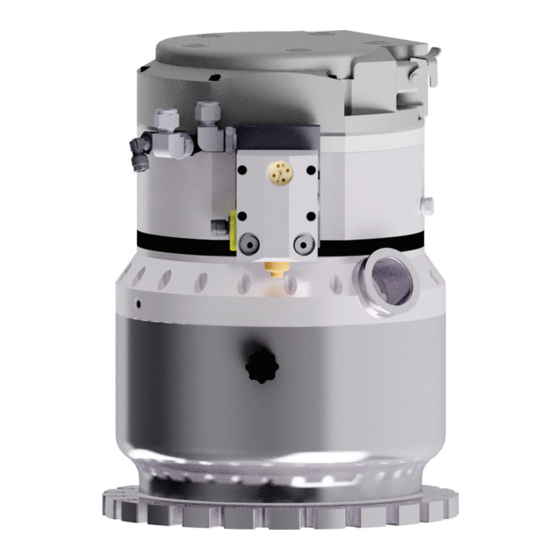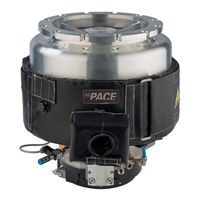
Pfeiffer Vacuum HIPACE 1200 I Manuals
Manuals and User Guides for Pfeiffer Vacuum HIPACE 1200 I. We have 2 Pfeiffer Vacuum HIPACE 1200 I manuals available for free PDF download: Operating Instructions Manual
Pfeiffer Vacuum HIPACE 1200 I Operating Instructions Manual (148 pages)
Turbopump prepared for temperature management system
Brand: Pfeiffer Vacuum
|
Category: Water Pump
|
Size: 16 MB
Table of Contents
-
Deutsch
3-
Abkürzungen10
-
Sicherheit12
-
Antrieb21
-
Rotorlager21
-
Kühlung21
-
Produkttypen22
-
Lieferumfang22
-
Transport23
-
Lagerung25
-
Installation26
-
Einbaulagen29
-
Betrieb42
-
Stellbefehle45
-
Ausschalten47
-
Fluten47
-
Wartung48
-
Störungen58
-
Ersatzteile63
-
Zubehör64
-
Allgemeines66
-
English
73-
Conventions78
-
Target Group78
-
Validity78
-
Variants78
-
Pictographs79
-
Safety82
-
Proper Use88
-
Cooling91
-
Drive91
-
Transport93
-
Storage95
-
Installation96
-
Commissioning112
-
Operation112
-
Operating Modes113
-
Control Commands115
-
TMS Connection115
-
Switching off117
-
Venting117
-
Maintenance119
-
Decommissioning127
-
Recommissioning127
-
Malfunctions130
-
Spare Parts135
-
Accessories136
-
General138
-
Technical Data138
Advertisement
Pfeiffer Vacuum HIPACE 1200 I Operating Instructions Manual (74 pages)
Brand: Pfeiffer Vacuum
|
Category: Industrial Equipment
|
Size: 10 MB
Table of Contents
-
Validity8
-
Variants8
-
Safety12
-
Proper Use18
-
Function21
-
Cooling21
-
Drive22
-
Transport24
-
Storage26
-
Installation27
-
Operation41
-
Venting46
-
Maintenance48
-
Malfunctions58
-
Spare Parts63
-
Accessories64
-
General66
-
Dimensions69

